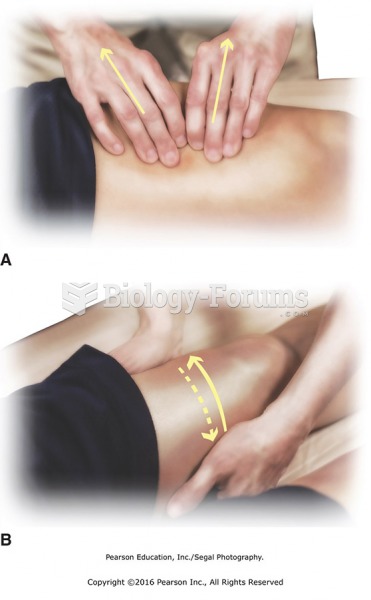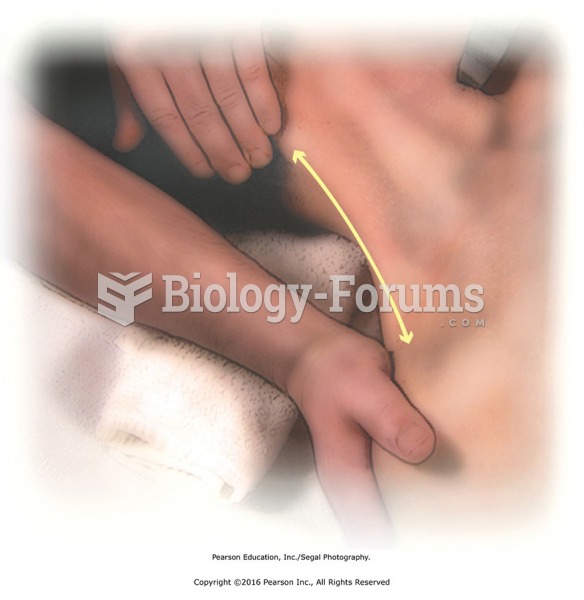|
|
|
About 3.2 billion people, nearly half the world population, are at risk for malaria. In 2015, there are about 214 million malaria cases and an estimated 438,000 malaria deaths.
Drying your hands with a paper towel will reduce the bacterial count on your hands by 45–60%.
Vaccines cause herd immunity. If the majority of people in a community have been vaccinated against a disease, an unvaccinated person is less likely to get the disease since others are less likely to become sick from it and spread the disease.
The types of cancer that alpha interferons are used to treat include hairy cell leukemia, melanoma, follicular non-Hodgkin's lymphoma, and AIDS-related Kaposi's sarcoma.
Tobacco depletes the body of vitamins A, C, and E, which can result in any of the following: dry hair, dry skin, dry eyes, poor growth, night blindness, abscesses, insomnia, fatigue, reproductive system problems, sinusitis, pneumonia, frequent respiratory problems, skin disorders, weight loss, rickets, osteomalacia, nervousness, muscle spasms, leg cramps, extremity numbness, bone malformations, decayed teeth, difficulty in walking, irritability, restlessness, profuse sweating, increased uric acid (gout), joint damage, damaged red blood cells, destruction of nerves, infertility, miscarriage, and many types of cancer.
 Place one hand on the medial and one on the lateral thigh to begin horizontal stroking. Slide hands ...
Place one hand on the medial and one on the lateral thigh to begin horizontal stroking. Slide hands ...
 Alternate kneading and shaking the thigh muscles. (A) Perform two-handed kneading over the lateral, ...
Alternate kneading and shaking the thigh muscles. (A) Perform two-handed kneading over the lateral, ...
 Use flat fingers to apply L strokes along lateral neck from below the ears toward the terminus and ...
Use flat fingers to apply L strokes along lateral neck from below the ears toward the terminus and ...




